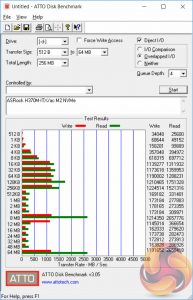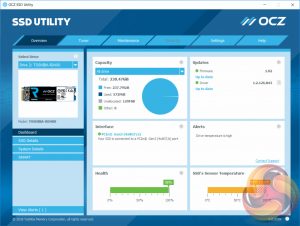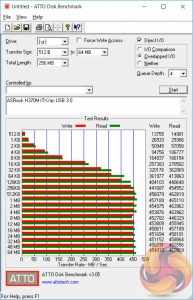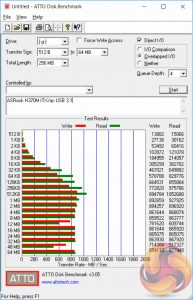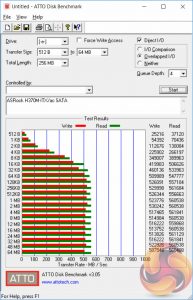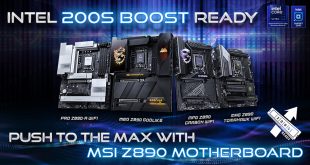ATTO Disk Benchmark
The ATTO disk benchmark is a Windows-based utility for testing storage performance of any storage drive or controller. We use the default benchmark setup.
M.2 PCIe Performance
For M.2 testing we use a Toshiba OCZ RD400 256GB M.2 PCIe NVMe SSD.
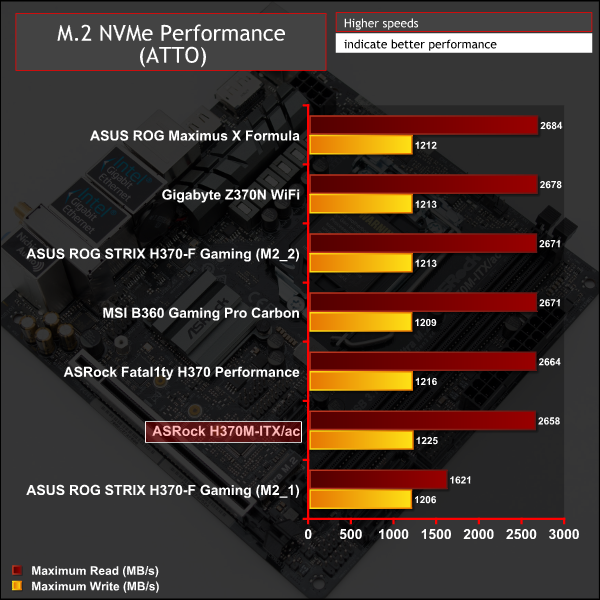
M.2 NVMe performance is as expected and the drive tested with is able to function at full speed. However, no M.2 cooling is provided so the drive throttles within a relatively short time period. This is to be expected for a budget motherboard like this one, buyers interested in M.2 cooling should look to high-end H370 or mid-range Z370 motherboards models and upwards.
USB Performance
We test USB 3.0 and 3.1 performance using a pair of Transcend SSD370S 512GB SSDs in RAID 0 connected to an Icy Box RD2253-U31 2-bay USB 3.1 enclosure powered by an ASMedia ASM1352R controller.
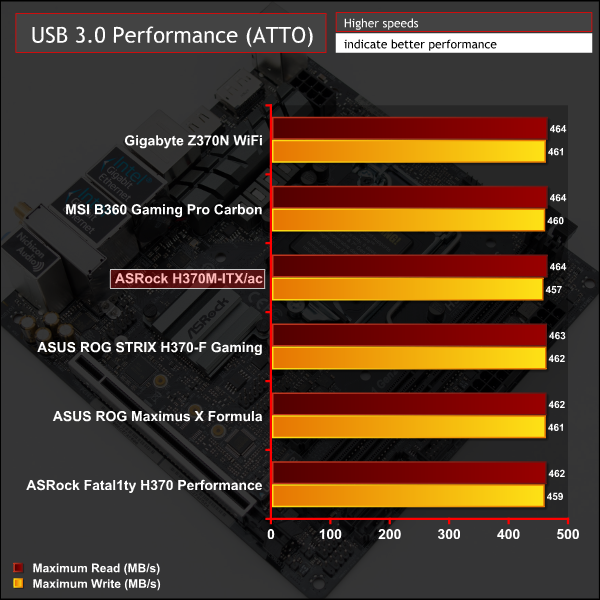
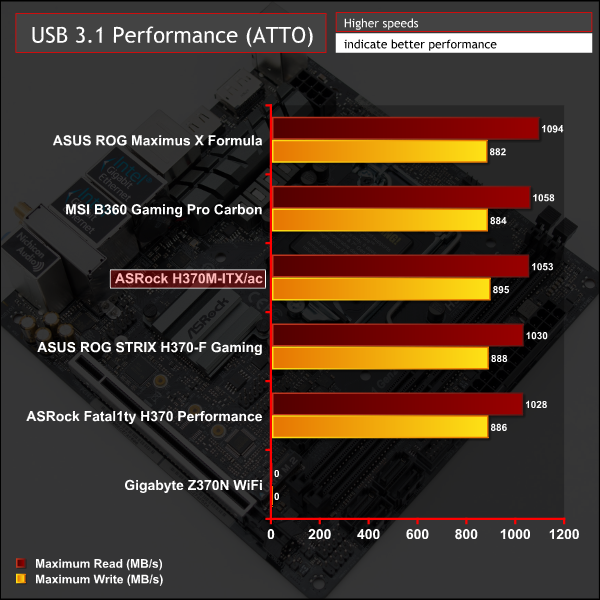
USB 3.1 and 3.0 performance are roughly the same as Z370. H370 and B360.
Unlike Z370, B360 and H370 include USB 3.1 (Gen 2) by default whereas on Z370 it is an optional extra that motherboard vendors are required to add themselves.
SATA 6Gbps Performance
For SATA 6Gbps testing we use an OCZ Trion 150 480GB SSD.
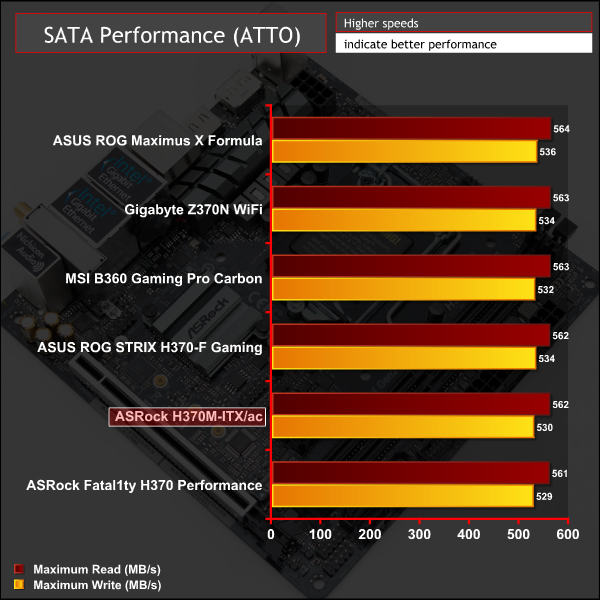
SATA III performance is typical and directly comparable to Z370.
Audio
Rightmark Audio Analyser is a freeware benchmarking utility designed to objectively test the performance characteristics of audio solutions. We setup a line-in line-out loop and execute the record/playback test before generating the results report you see below. A sampling mode of 24-bit, 192 kHz is tested where available. If unavailable the closest alternative operating mode available is used and clearly marked.
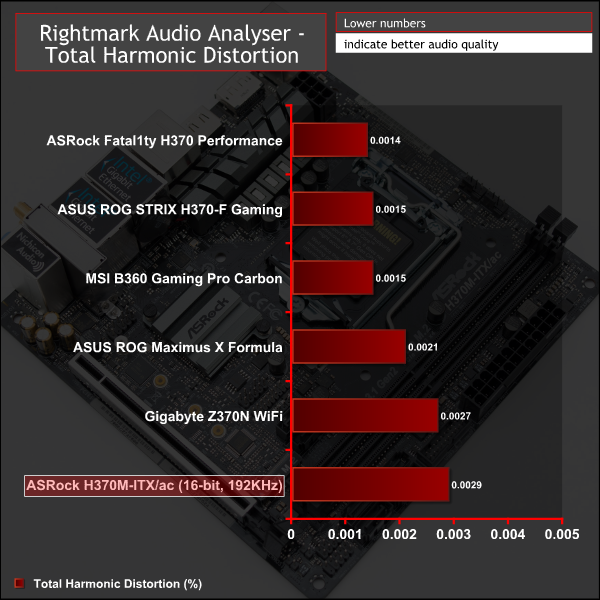
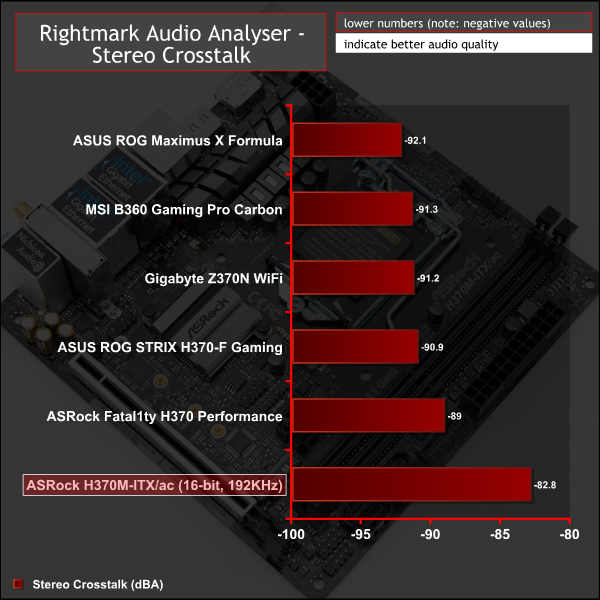
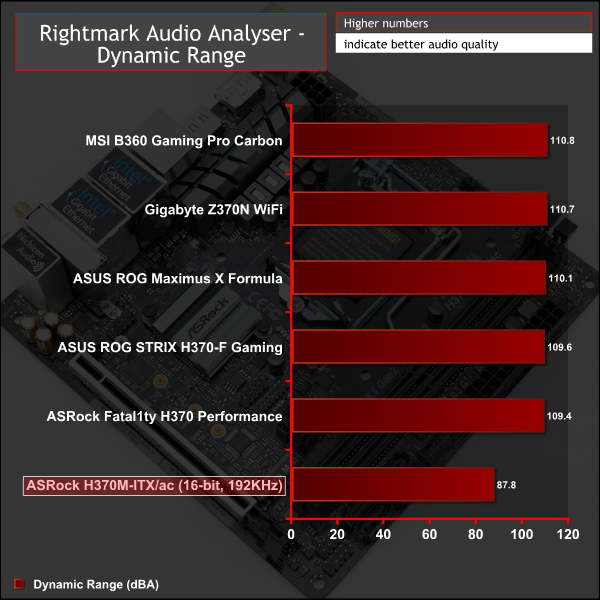
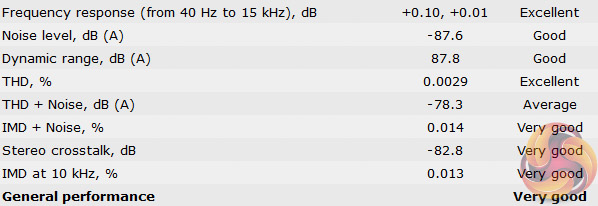
Audio performance is lower than all other motherboards on test since the H370M-ITX/ac uses the slightly older Realtek ALC892 codec. Most mid-range to high-end modern motherboards usually have Realtek ALC1220 but ASRock positions this motherboard as entry-level hence the older codec.
Overall performance is still rated as Very Good with respectable results in all tests, though the testing mode is 16-bit, 192KHz rather than 24-bit, 192KHz due to the fact this implementation of Realtek's ALC892 cannot provide 24-bit audio. There is no Operational Amplifier but ASRock still use Nichicon Fine Gold (FG) series audio capacitors.
Given its potential positioning as a HTPC motherboard the lack of flexibility in the audio department (no native 7.1 in the rear I/O or optical audio) could be a hindrance, though HDMI audio is still an option when used in tandem with a TV.
 KitGuru KitGuru.net – Tech News | Hardware News | Hardware Reviews | IOS | Mobile | Gaming | Graphics Cards
KitGuru KitGuru.net – Tech News | Hardware News | Hardware Reviews | IOS | Mobile | Gaming | Graphics Cards


